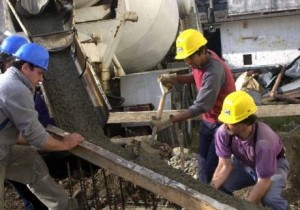EspañolDuring a ceremony at Argentina’s Government House held on Monday, President Cristina Fernández de Kirchner presented a bill to combat illegal hiring, job insecurity, and labor fraud in Argentina. The goal is to get about 650,000 workers back into the formal labor market within two years.
Those leading the initiative expect it to lower the proportion of workers who are unregistered from 33 to 30 percent during the first year of implementation. As part of a policy of tougher enforcement, the proposal will increase the powers of the Ministry of Labor, led by Carlos Tomada.
According to Kirchner, this bill will solve the “second problem that workers have” — job security and labor protections. The first, she said, is not having a job. She stated that micro enterprises of up to five workers would significantly benefit from it, since it would exempt them from paying payroll taxes, reducing the total cost per employee by 6 percent.
The main objective is to encourage employers to register their employees by reducing social security charges and similar costs. With this in mind, the law contemplates an incentive mechanism that promotes the progressive legalization of labor contracts for companies that employ between six and 80 people.
According to Cristina Kirchner, “job insecurity puts people under pressure, which makes them accept low wages,” and hoped that the proposal will be approved by Congress.” She seized the opportunity to explain that under her administration employment grew by “more than 6 million jobs,” and that the unemployment rate reached 6.4 percent for the final quarter of last year, which “is the lowest in living memory.”
The president called on the unions to cooperate on this issue: “We need the full support of unions for this initiative.” She added that “it is our duty to never, never, never forget those who suffer in an insecure job, or that still haven’t found one, especially given the volatility of the current labor market.”
This project, which comes less than a week after a general national strike organized by opposition unions, has the explicit support of some pro-government unionists such as Claudio Marín, secretary of the Argentinean Workers’ Central Union (CTA). For him, this is “an advance against precarious work because it promotes legal hiring.”

However, the unionist says “It will be of utmost importance to supplement [the bill] with a limitation on temporary hiring, which is a form of job insecurity. This should be done by avoiding such shady schemes among parent and subsidiary companies, and the outsourcing of the main activity of large companies.”
Mario Almirón, secretary general of the Argentinean Union of Private Teachers (SADOP), also supports the bill. He explains that clandestine labor relationships mean fewer rights for workers “because they mean that workers don’t have health insurance, contributions to social security, pension programs, and labor protection. A monthly salary is only a part of workers’ compensation; these benefits are equally important.”
What the Project Contemplates
The proposal, which according to Kirchner implies a fiscal cost of AR$4.15 billion, is expected to be implemented by 65 percent of micro enterprises, about 290,000 micro employers.
“There will be a 100 percent discount for each new worker they hire; they will be exempt from employer contributions during the first year,” and the law contemplates the creation of a public registry for preventing labor fraud. This way, the president said, “when an employer violates the rules and hires workers illegally, they lose all the benefits they receive from the state.”
The bill also aims to widen the scope of Act 26,476, which provides benefits for hiring new workers, including specific benefits for small businesses, and reaching agreements with the unions for assessing highly seasonal agricultural or forestry activities.
The Problem of Labor Taxes and Regulations
Argentinean jurist Ricardo Rojas points out several problems that might arise as the result of this project that aims at reducing the informal economy. For him, “labor taxes and regulations are the main cause of unemployment, and this has to be considered by any initiative for fighting illegal hiring. The government’s proposal aims to reduce these burdens for small businesses, and that’s not bad, but the distinction between small and large businesses generates a distortion and endangers the latter, who are the movers and shakers of the economy.”
Regarding what Kirchner said about a decrease in the unemployment rate during her tenure, an article published by the Argentinean Liberty and Progress Foundation explains that the decrease is not as large as claimed. In fact, combined informal and government employment fell from 69 to 64 percent. Many of the workers that escaped the informal economy are now simply employed by the government.
“The additional problem for the economy’s productivity,” the report asserts, “is that to finance the increase of government employment, the tax burden on the private sector must increase. That is, we now have more low-productivity jobs funded with higher taxes paid by the more productive private sector. When taxes are not enough, unproductive employment is financed by printing money. For 2014, the tax burden is likely to exceed 49 percent of GDP, taking into account the inflationary tax.”
For Enrique Ghersi, a Peruvian lawyer and politician, “the origin of [the informal economy] is not cultural, religious, or ethnic; it lies in the inefficiency of the law. In technical terms, labor informality is caused by what we call the cost of legality.” The lawyer asks, “What is the cost of the law, then? The amount of time and information needed to comply with it.”
Hernando de Soto of Peru’s Institute for Liberty and Democracy, also concludes that the main cause of labor informality is the legal system itself: “We should focus all our investigate efforts on legal institutions. We believe that Peruvian law, as well as that of many other Latin-American countries, is clearly a law that hinders rather than facilitates the productive life of the people.”
 Versión Español
Versión Español












